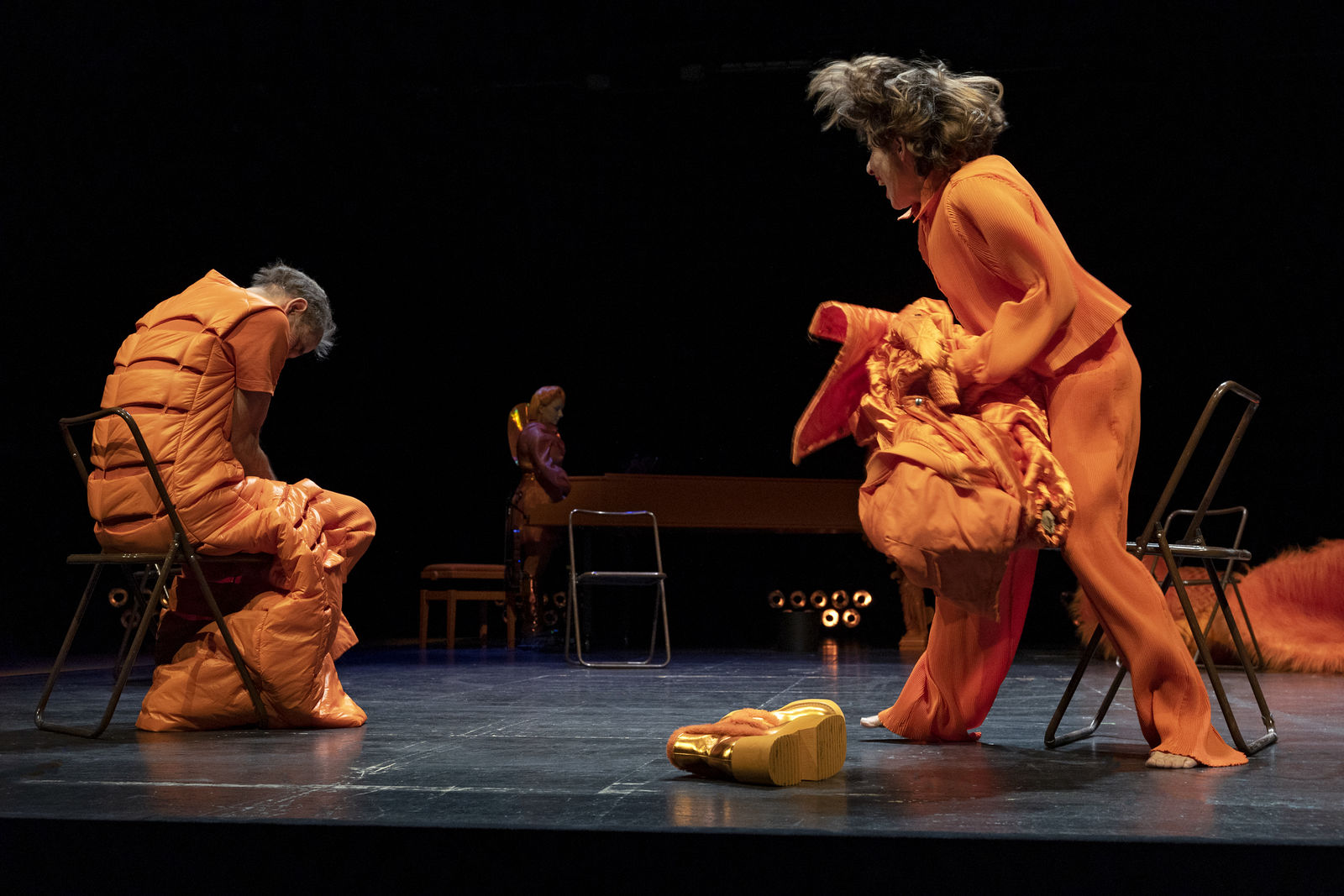
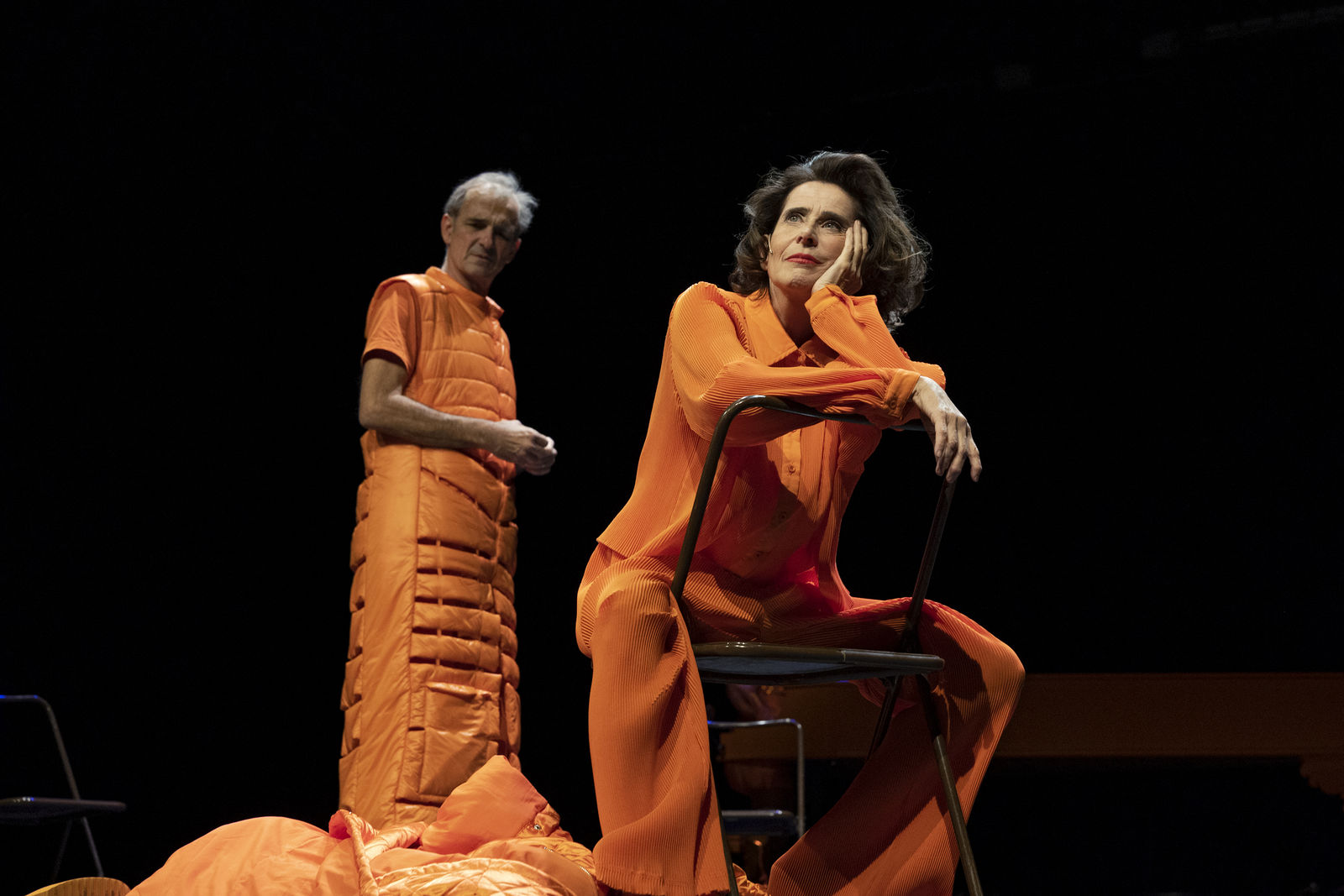
Liebes Arschloch
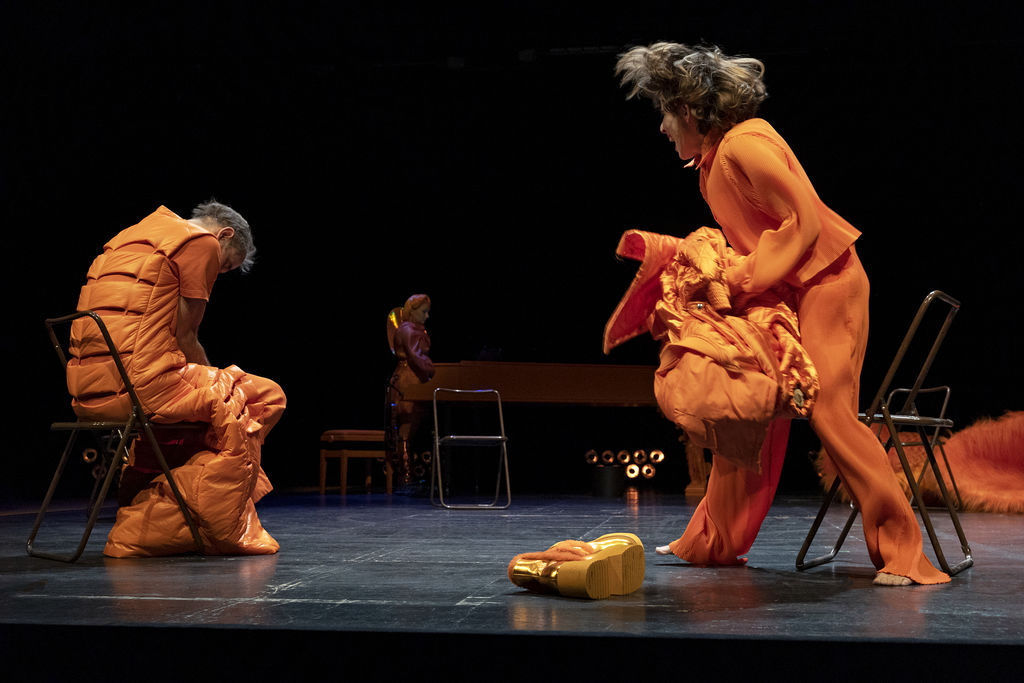
About this Play
Rebecca — a daring film star and fifty-something diva with an affinity for drugs, who struggles with her age and, possibly because of it, also with her job.
Oscar — a few years younger and Rebecca’s biggest fan since his teenage years, a writer and in the middle of a #MeToo scandal, whose media repercussions overshadow his newly published novel.
Zoé — former press officer at Oscar’s publishing house, in her thirties and now a feminist social media activist, who kicked off the #MeToo scandal ten years after Oscar’s sexual assault and her (!) subsequent dismissal.
Three very different characters meet in Virginie Despentes’ epistolary novel Cher Connard [Dear Asshole]. They negotiate old and new feminism, addiction and withdrawal, #MeToo and cancel culture, class and identity. Dazzling material for political director Yana Ross, who is bringing this heated exchange to the Pfauen-stage for its world premiere. With her uncompromising and precise gaze and together with the actors Karin Pfammatter and Matthias Neukirch as well as the musician Magda Drozd, Yana Ross tries to make the great contradictions between Rebecca, Oscar and Zoé recognisable while still creating an intimacy that leaves room for shame and anger. The evening cannot offer solutions, but it can seek dialogue, and maybe even change. Maybe even hope.
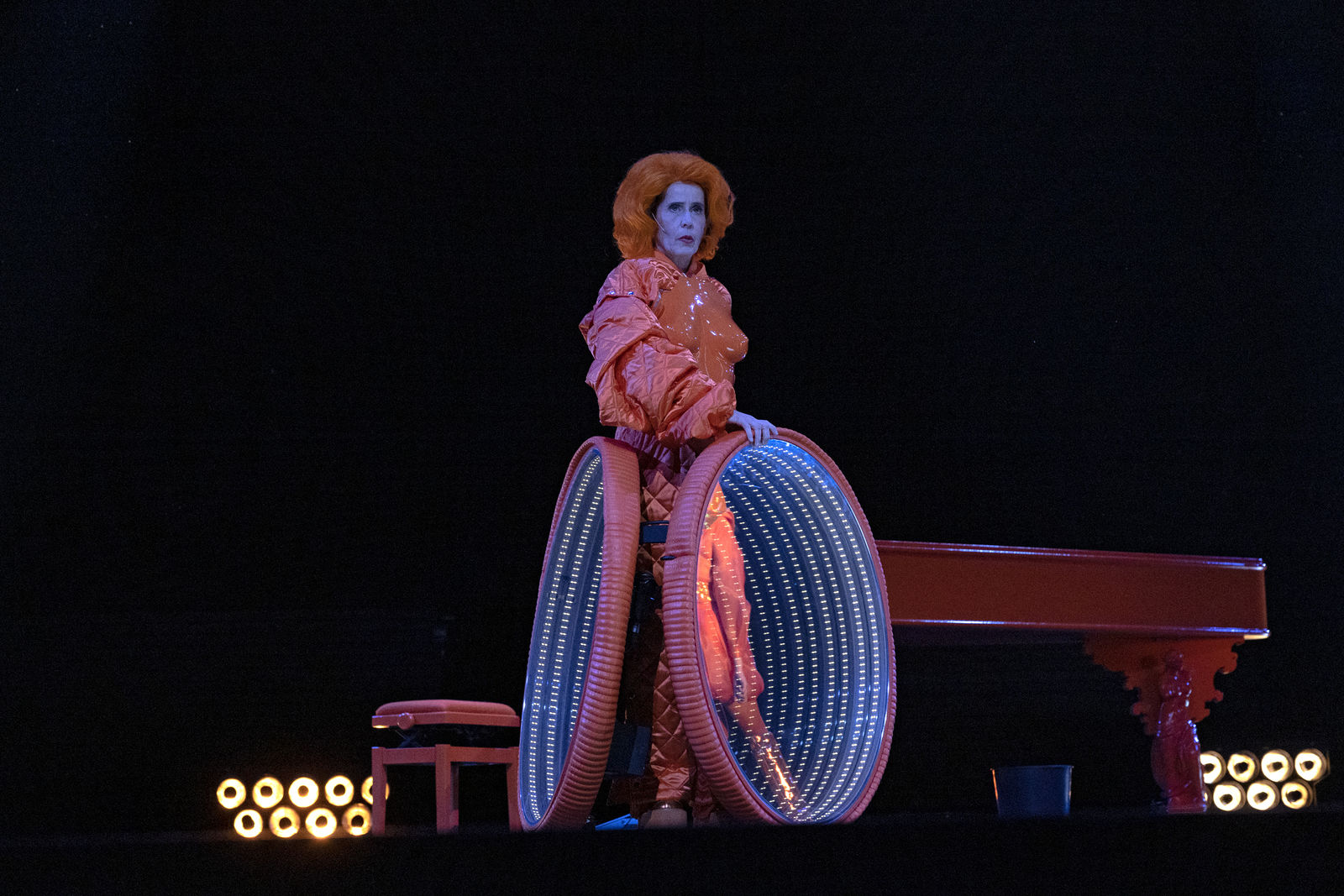
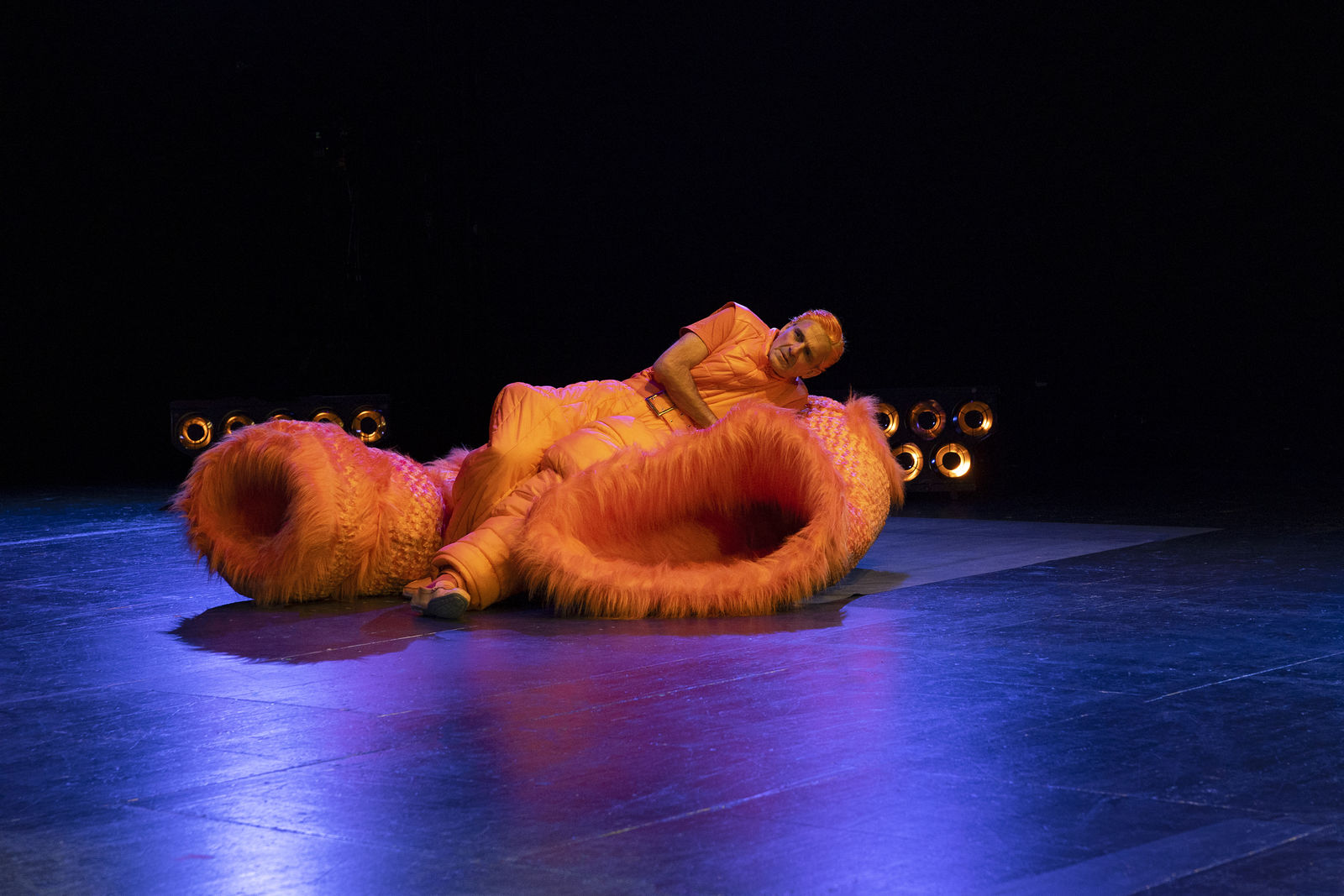

Karin Pfammatter
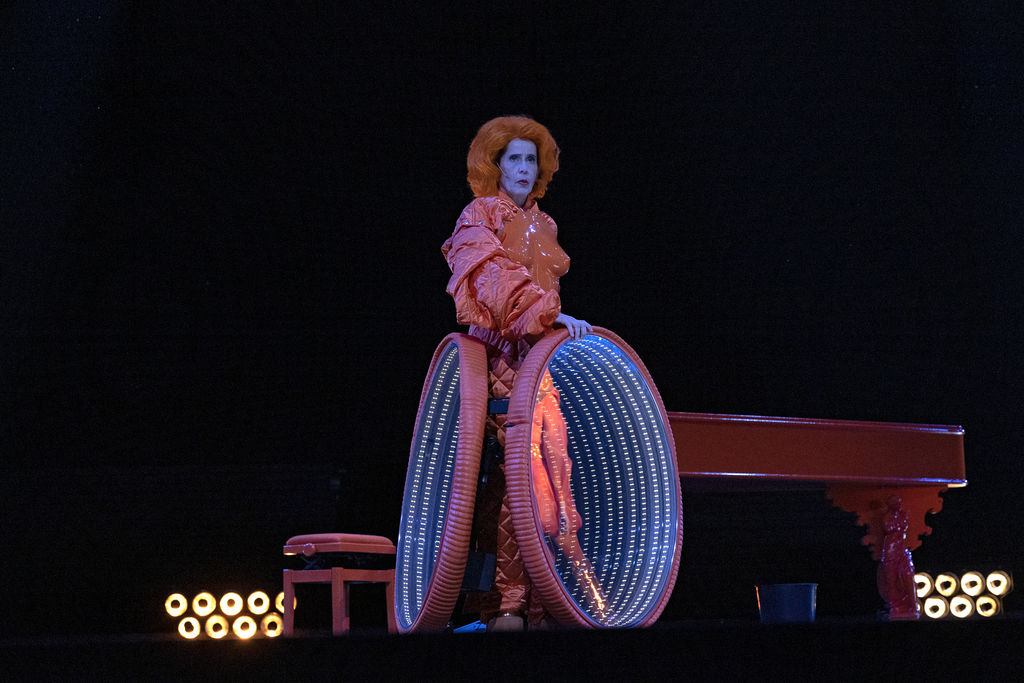
Karin Pfammatter
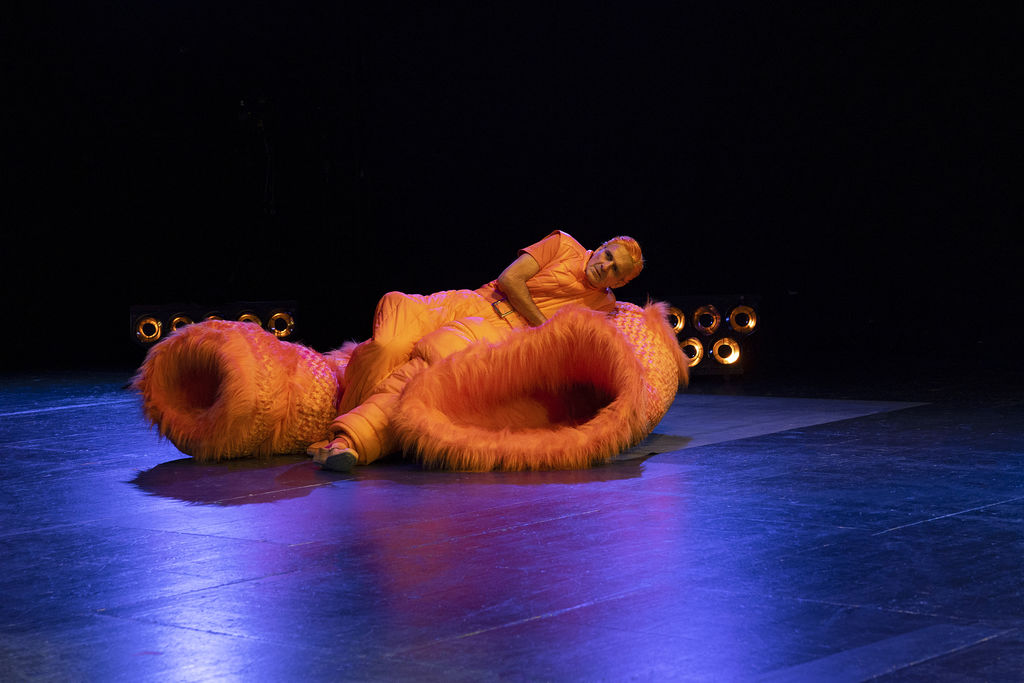
Matthias Neukirch
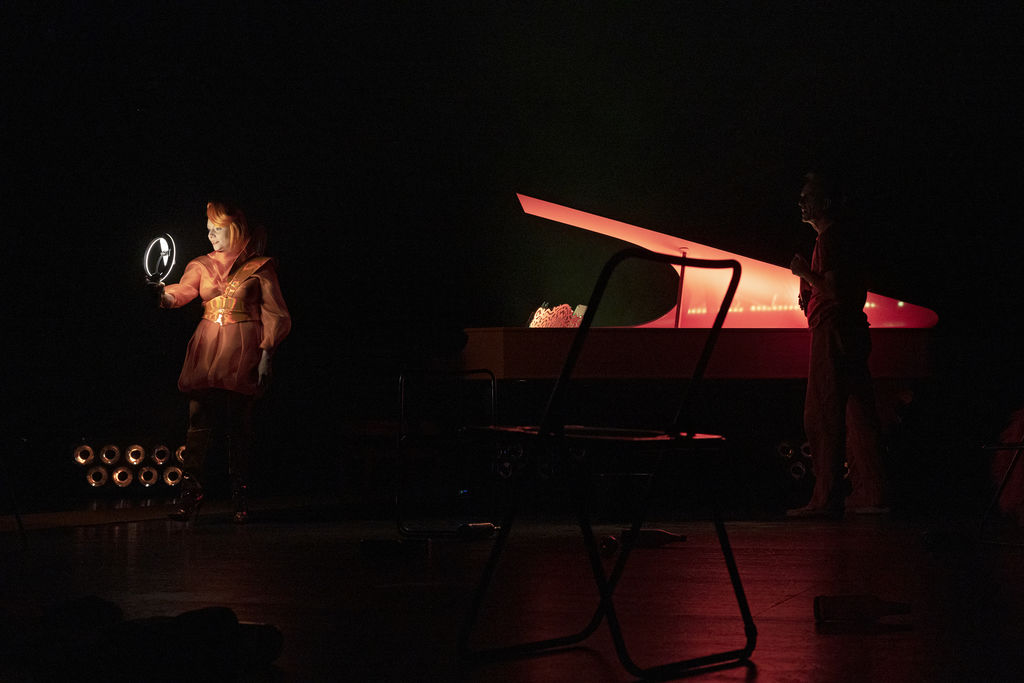
Magda Drozd
- Staging
- Yana Ross
- Live music
- Magda Drozd
- Costume design
- Zane Pihlström
- Music
- Magda Drozd
- Light
- Frank Bittermann
- Dramaturgy
- Katinka Deecke
- Audience Development
- Silvan Gisler / Tali Furrer
- Touring & International Relations
- Sonja Hildebrandt
- Artistic Mediation T&S
- Manuela Runge
- Production Assistance
- Samuel Petit
- Eva Lillian Wagner
- Costume design Assistance
- Sara Bosshard
- production intern
- Philipp Stevens
- Costume intern
- Lisa-Maria Liner
- Inspection
- Michael Durrer
- Soufflage
- Katja Weppler
- Surtitle installation
- Raman Khalaf (Panthea)
- Surtitle translation
- Anna Galt
Virginie Despentes wird von Intertalent Paris vertreten. Die Aufführungsrechte der Übersetzung liegen beim Rowohlt Theater Verlag, Hamburg.
Der Roman Liebes Arschloch von Virginie Despentes, aus dem Französischen von Ina Kronenberger und Tatjana Michaelis, ist im Verlag Kiepenheuer & Witsch erschienen.
About this Production
For an evening at the theatre to be charged with meaning, a number of things have to come together. Meaning is not simply there, it takes work, requires moulding, dedication and commitment. And yet some things are always left to circumstances, which theatre people always hope for and depend on. Liebes Arschloch [Dear Asshole], the world premiere of the novel by French author Virginie Despentes, directed by Yana Ross, unites both. An unusually high density of events and dedication contributes to the fact that meaning becomes possible and a lively pulse begins to beat. First of all, this is due to the simple willingness of the people, who are responsible for this production, to get involved in the joint undertaking, to engage with each other and with the material. This willingness may be taken for granted, and yet it is also very easy for people to close themselves off, for fear to creep in or for a powerful need for recognition to dominate the room. However, the willingness to get involved is an absolute prerequisite for something to emerge that goes beyond the everyday and the familiar. No matter how much time and money can be invested, if the people responsible do not open up, do not make themselves vulnerable, do not allow themselves to be involved in sharing, we can only hope that the arduous hours of working together will quickly pass and the result of the work will be waved through without question. For Liebes Arschloch, the participants have put their hearts and souls into it, made themselves available, opened themselves up, made themselves vulnerable, and engaged with passion and care in the question of a tomorrow beyond pain, beyond patriarchal violence. First and foremost, it was the two actors Karin Pfammatter and Matthias Neukirch and the musician Magda Drozd who left fear of failure and vanity aside in order to engage with Virginie Despentes' language and characters with their own hope, their own experiences, their own wounds.
In addition to the courage of the performers, other external circumstances also played a role in this production, which are less easy to influence but have a significant impact on the process and the result. It begins with the decision by Virginie Despentes and her publisher to give the Schauspielhaus Zürich the rights to the first performance of the novel. A #MeToo novel written by the queerfeminist, funny and radically complex author of Baise-moi and King Kong Theory promised a theatrical material on the pulse of time and at the height of discourse, with vivid characters and effective language; both an honour and a challenge to bring the characters to life on a stage for the first time.
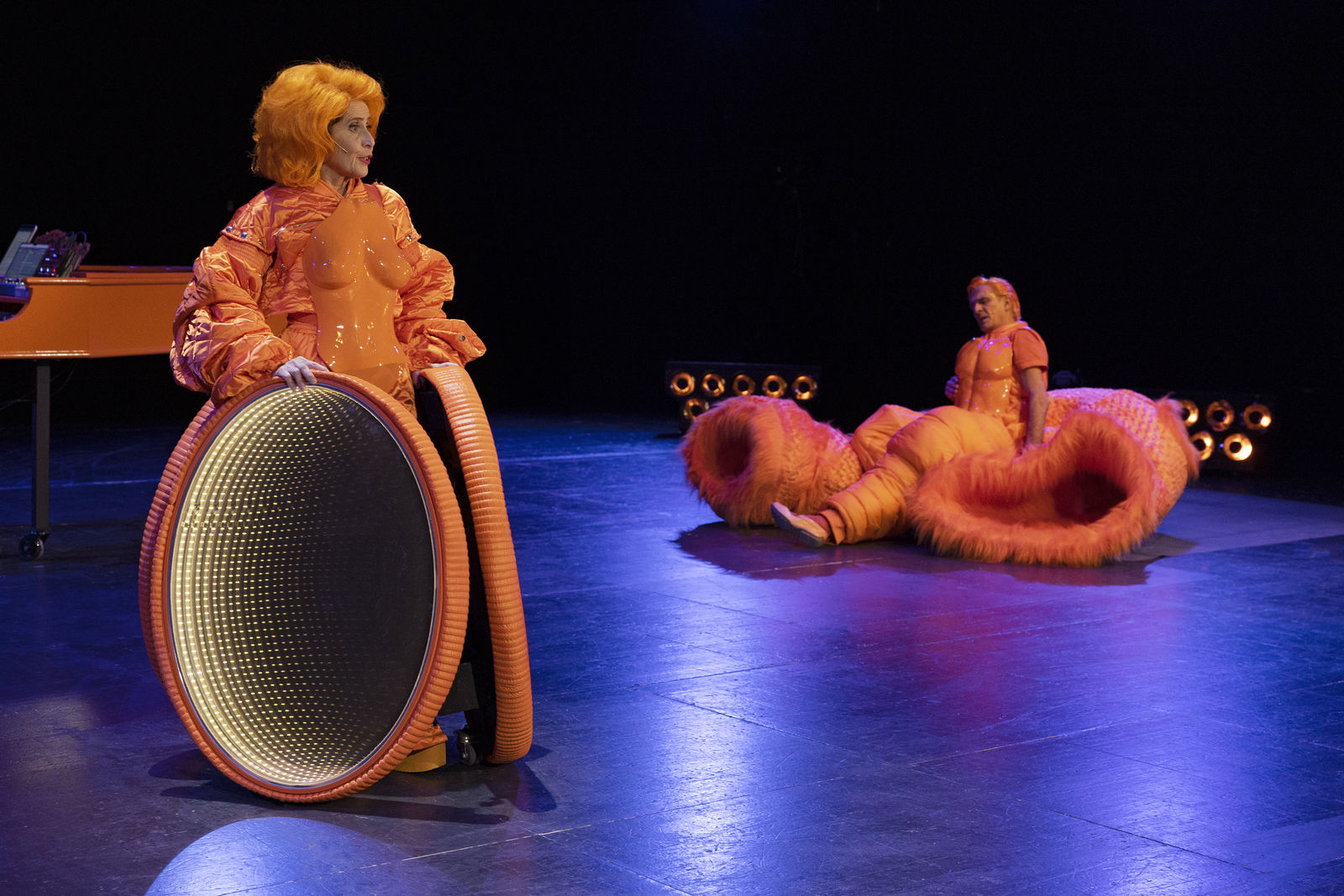
Karin Pfammatter, Matthias Neukirch
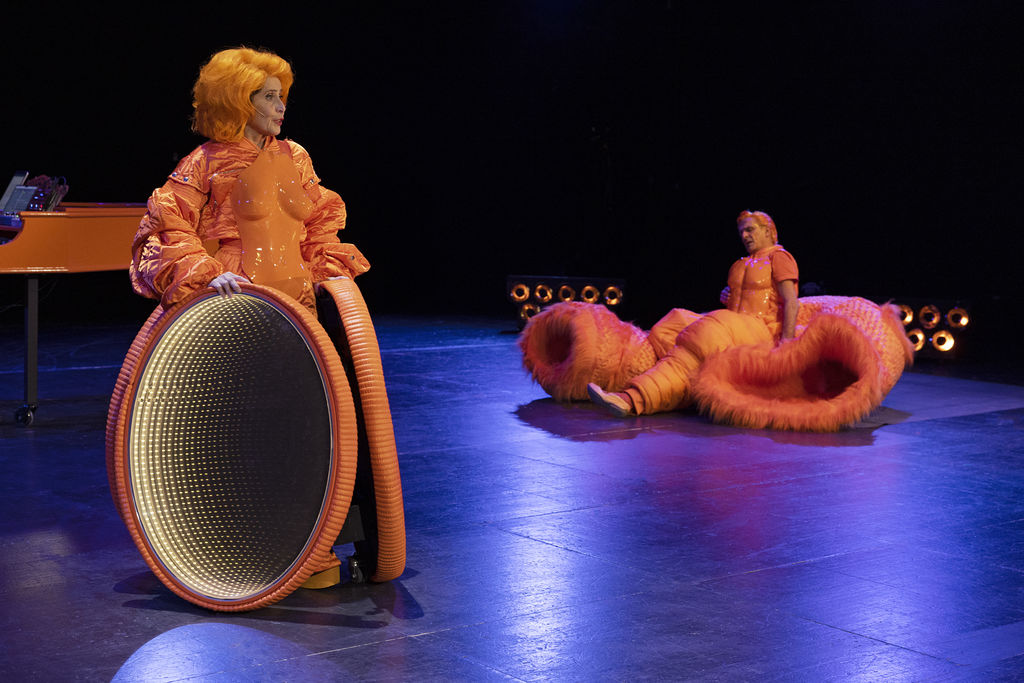
Karin Pfammatter, Matthias Neukirch
But a good text does not make a successful theatre production. The driving force in the theatre that holds everything together is the director. At the same time as the Schauspielhaus was trying to secure the world premiere rights to Liebes Arschloch, director Yana Ross read the book and knew immediately: I want to do this! Virginie Despentes and Yana Ross are not just two artists coming together, but also two activists with a wealth of experience. Yana Ross returns to the Schauspielhaus as a former in-house director after taking a break for a season to bid her farewell to Zurich. Yana Ross and Zurich had an ambivalent relationship from the very beginning. On the one hand, Yana Ross was able to make theatre at the Schauspielhaus under excellent conditions, establish connections with extraordinary people in the city, and influence the discourse with powerful theatrical settings. On the other hand, Zurich reacted with irritation to Yana Ross' claim that theatre should be seen as an uncompromisingly political place where a society must rub up against itself and actively confront its own blind spots and repressed prejudices. For peace-loving, diplomatic Zurich, the directness and clarity of Yana Ross' political art was not always easy to accept. Now she is returning once again to reaffirm her claim to a radically political theatre and once again to express her expectation of the city to look exactly where it is uncomfortable and hurts.
Because Liebes Arschloch also works in Zurich. There is a powerful patriarchy in Zurich too, there are many self-confident men who get away with everything, and at the same time there is a social consensus to keep a low profile and not look too closely when yet another rude man crosses boundaries. Despite its picturesque beauty and cheerful boredom, Zurich is also a rough place, where money, power and masculinity enjoy special rights and the loud denunciation of these privileges is not welcomed. These men, and there are many of them, are "dangerous" – as journalist Miriam Suter wrote in an eye-opening post on Instagram about her experiences in Swiss journalism; only recently, in autumn 2023, she and a few other women took the floor when #MediaToo, a specifically Swiss abuse of power, became public. Drug addiction or substance-related dependency, which holds the protagonists of the novel in its iron clutches, also accompanies the Zurich residents through their everyday lives, be it in the form of alcohol or cocaine, eating disorders or psychedelic microdosing. There are "a lot more people who use drugs than you might initially think," says Dr Thomas Lüddeckens, a specialist in psychiatry and psychotherapy and head physician at the Klinik im Hasel just outside Zurich, who talked about the psychological and social structures that cause and perpetuate addiction in a conversation with us.


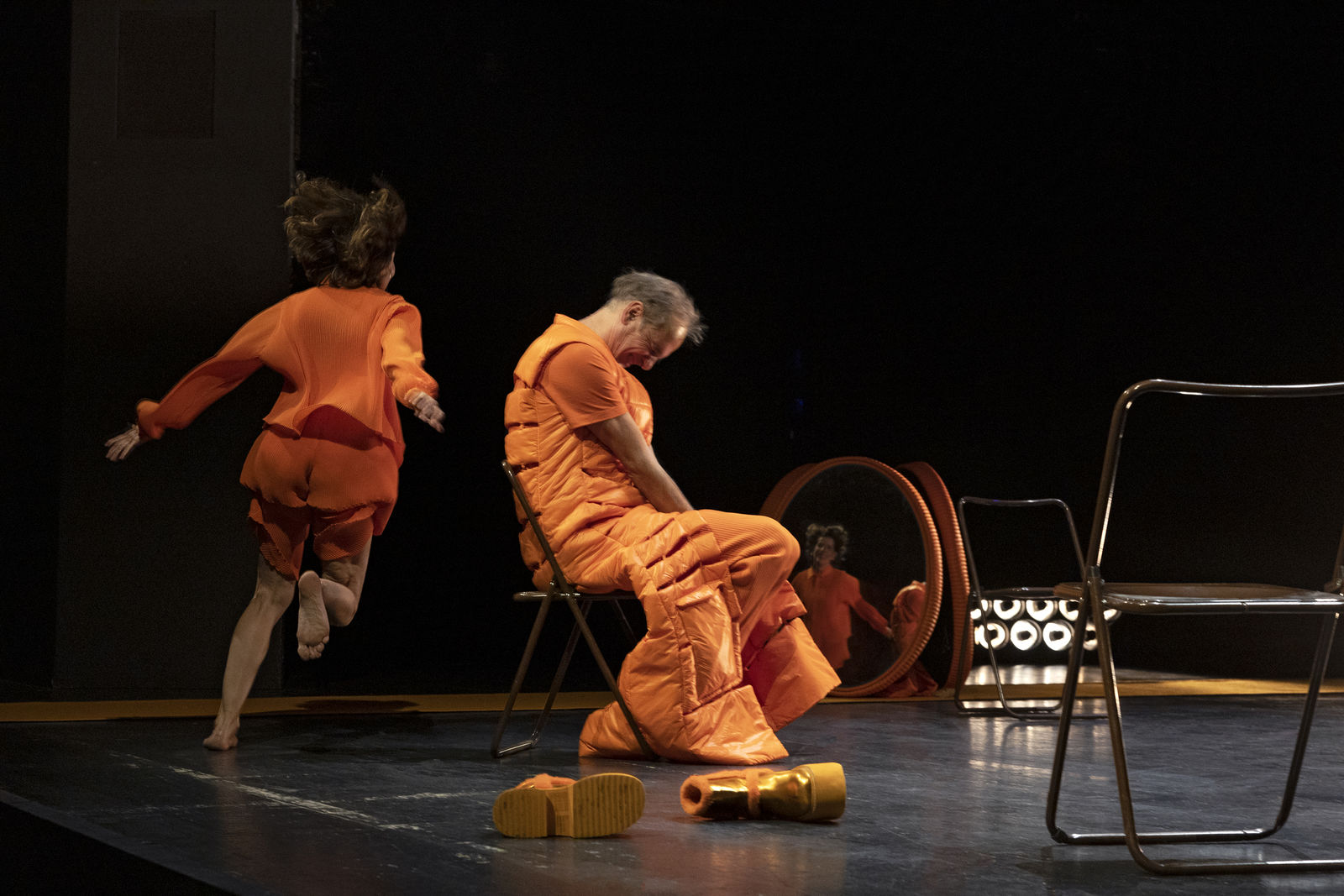
Matthias Neukirch, Karin Pfammatter
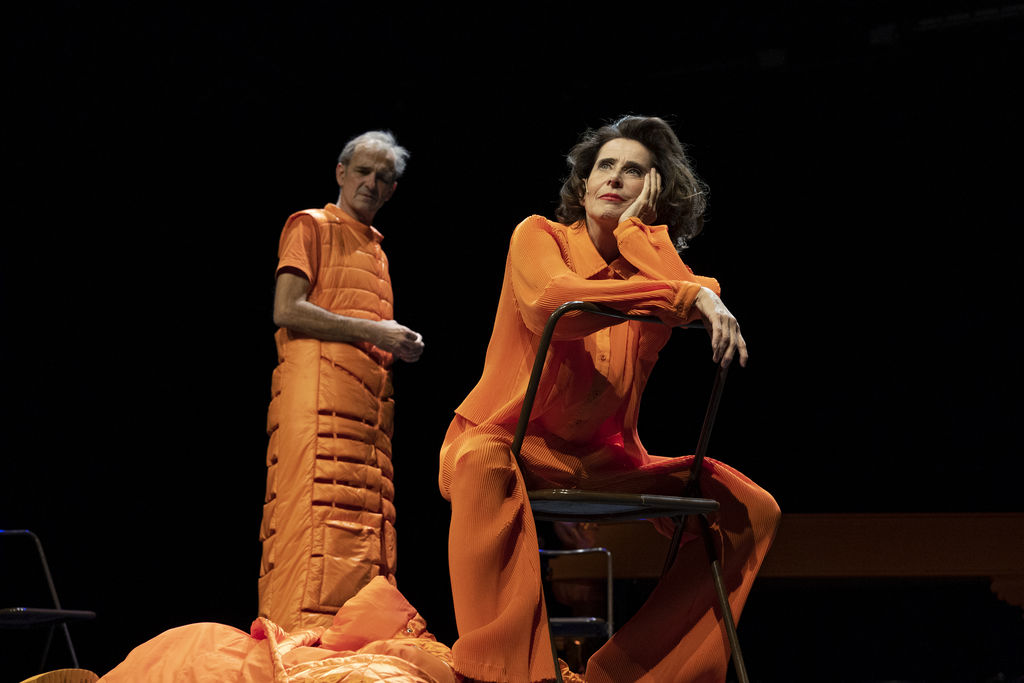
Matthias Neukirch, Karin Pfammatter

Matthias Neukirch, Magda Drozd, Karin Pfammatter
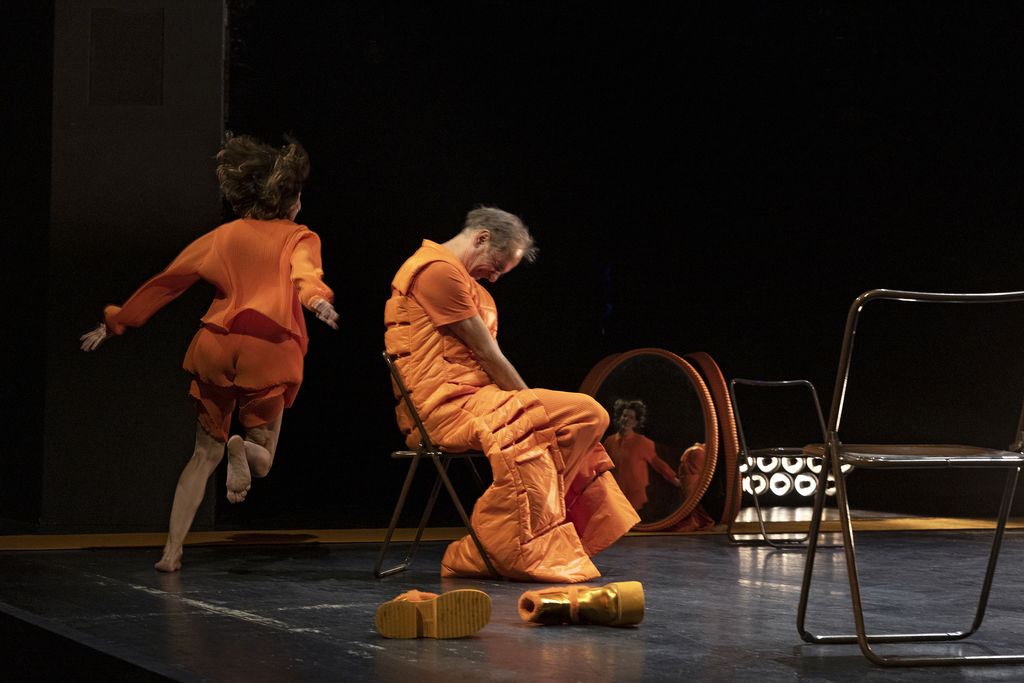
Karin Pfammatter, Matthias Neukirch
And yet, despite the harshness, despite the honesty, Virginie Despentes has also written a conciliatory novel with Liebes Arschloch. She shows genuine affection for all three of her characters: Rebecca, the ageing film diva with a taste for reckless men and hard drugs; Oscar, the successful author who stumbled across a #MeToo scandal and is so afraid of his daughter that he avoids contact with her; and Zoé, the young woman who finally gains self-confidence after being massively harassed by Oscar, and becomes a strong feminist voice on social media. Virginie Despentes sympathises with all three characters, with their vanities and fears, and sympathetically describes how the injuries inflicted on them lead to armouring and cynicism. Virginie Despentes is concerned with understanding and yet she does not defend the perpetrators. She confronts them with their responsibility, accuses them, and then reaches out her hand in the knowledge that it is not easy to be a human being in the midst of a patriarchal world. But this reaching out remains difficult. It is difficult to show understanding for the perpetrators, difficult to face up to the complexity of the circumstances and many do not succeed or do not want to succeed. Together with Virginie Despentes, Yana Ross, Matthias Neukirch and Karin Pfammatter are making an attempt at understanding, which is perhaps also possible because all four belong to the same generation, a middle generation that is now referred to, more or less disparagingly, as boomers. They present a specific view of patriarchy, perhaps a conciliatory one, perhaps an outdated one, perhaps a promising one.
Finally, a very external circumstance contributed to giving this production a special aura. The International Day for the Elimination of Violence against Women takes place on the very day of the premiere: 25 November. Liebes Arschloch, directed by Yana Ross, thus joins a global effort against patriarchy initiated by the United Nations. The colour of this day, the colour of 25 November and also the colour of this production is orange. Not only Rebecca and Oscar on the stage of the Schauspielhaus Zürich are dressed in orange, but the whole world is called upon to wear orange Orange on 25 November. This significant coincidence, the charging of the aesthetic vision of costume designer Zane Pihlstrom with the political will of a global emancipation movement, should be seen as an encouraging sign of the effectiveness of the common struggle. The continuous dismantling of patriarchal structures, the constant defence against patriarchal behaviour is not a niche topic. People and organisations all over the world are committed to this fight and the premiere of Liebes Arschloch on the International Day for the Elimination of Violence against Women is part of it. Fight Like a Girl! KD
PS: If you don't watch this production on 25 November, a few years ago the UN declared the 25th day of every month "Orange Day", making the fight against violence towards women a continuum throughout the year. Orange can be a symbol on any day.
Video Interviews

Ad

Ad


Karin Pfammatter

Karin Pfammatter
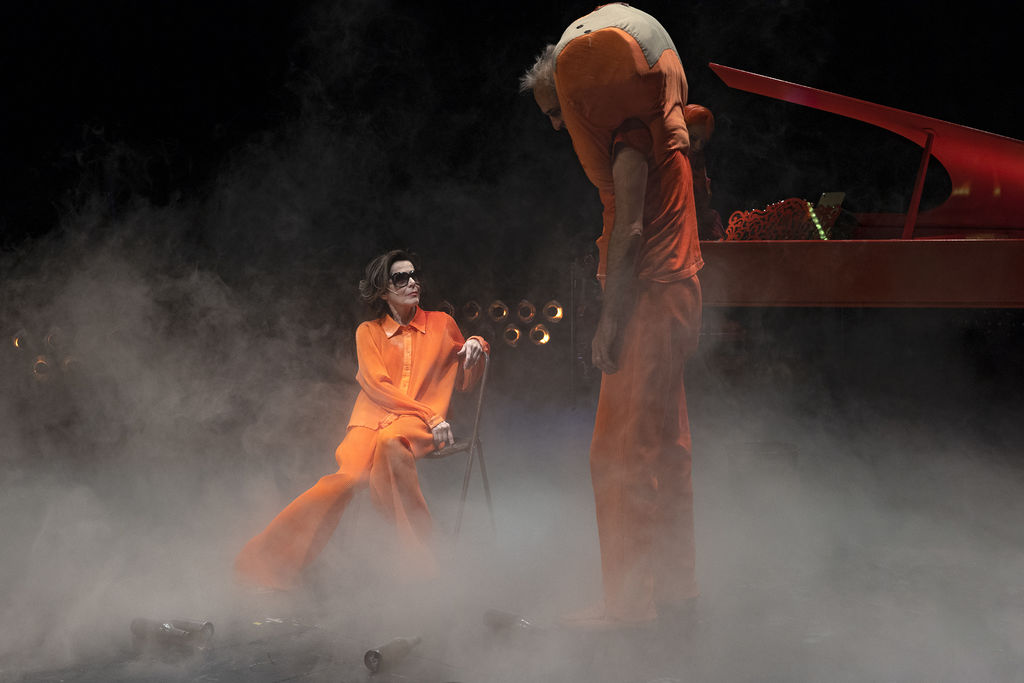
Karin Pfammatter, Matthias Neukirch

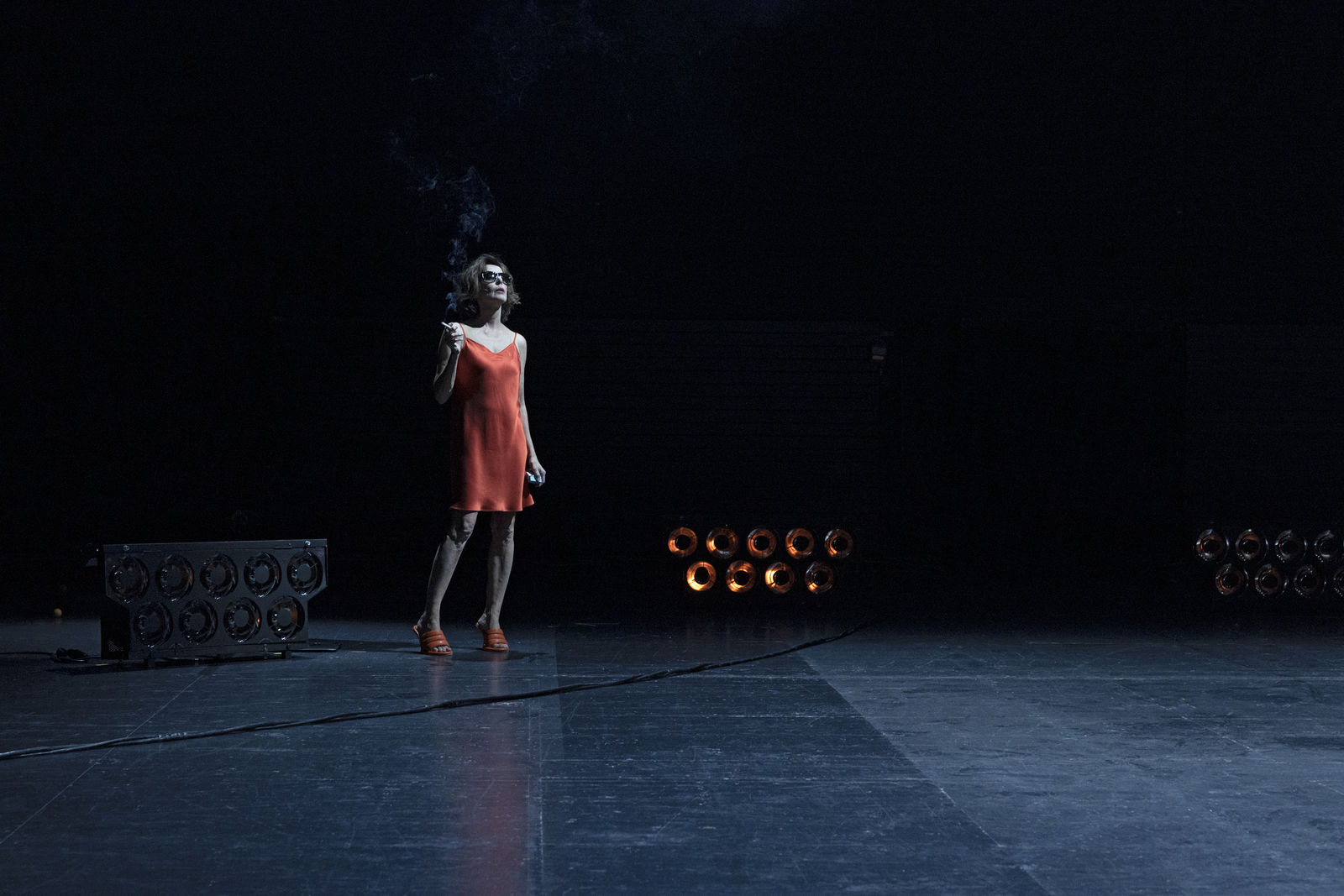
Magda Drozd

Magda Drozd
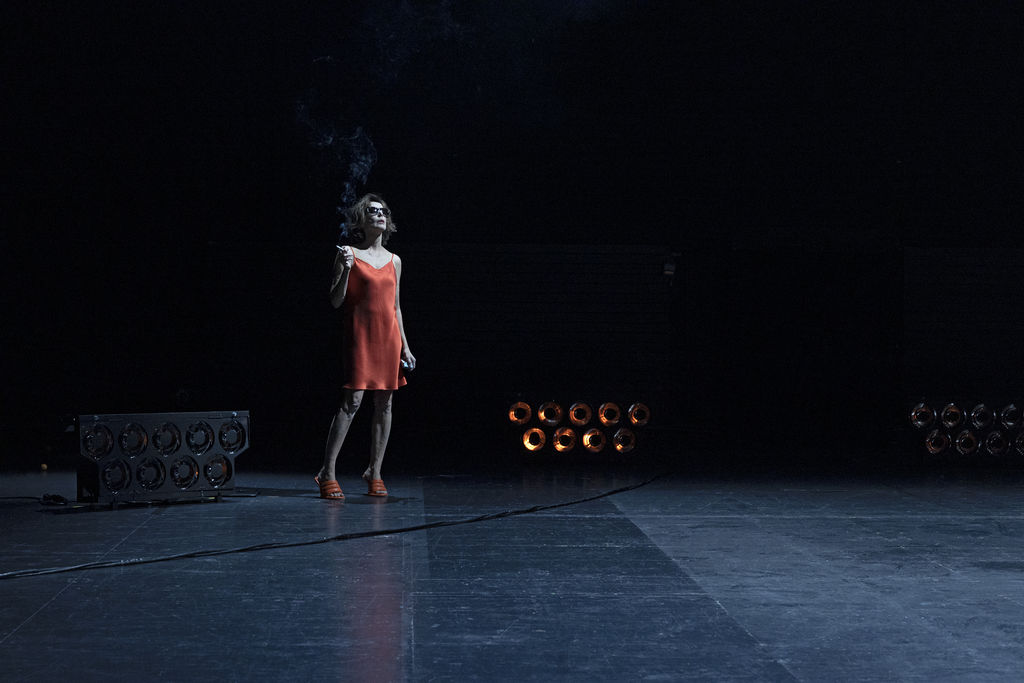
Karin Pfammatter


Costumes


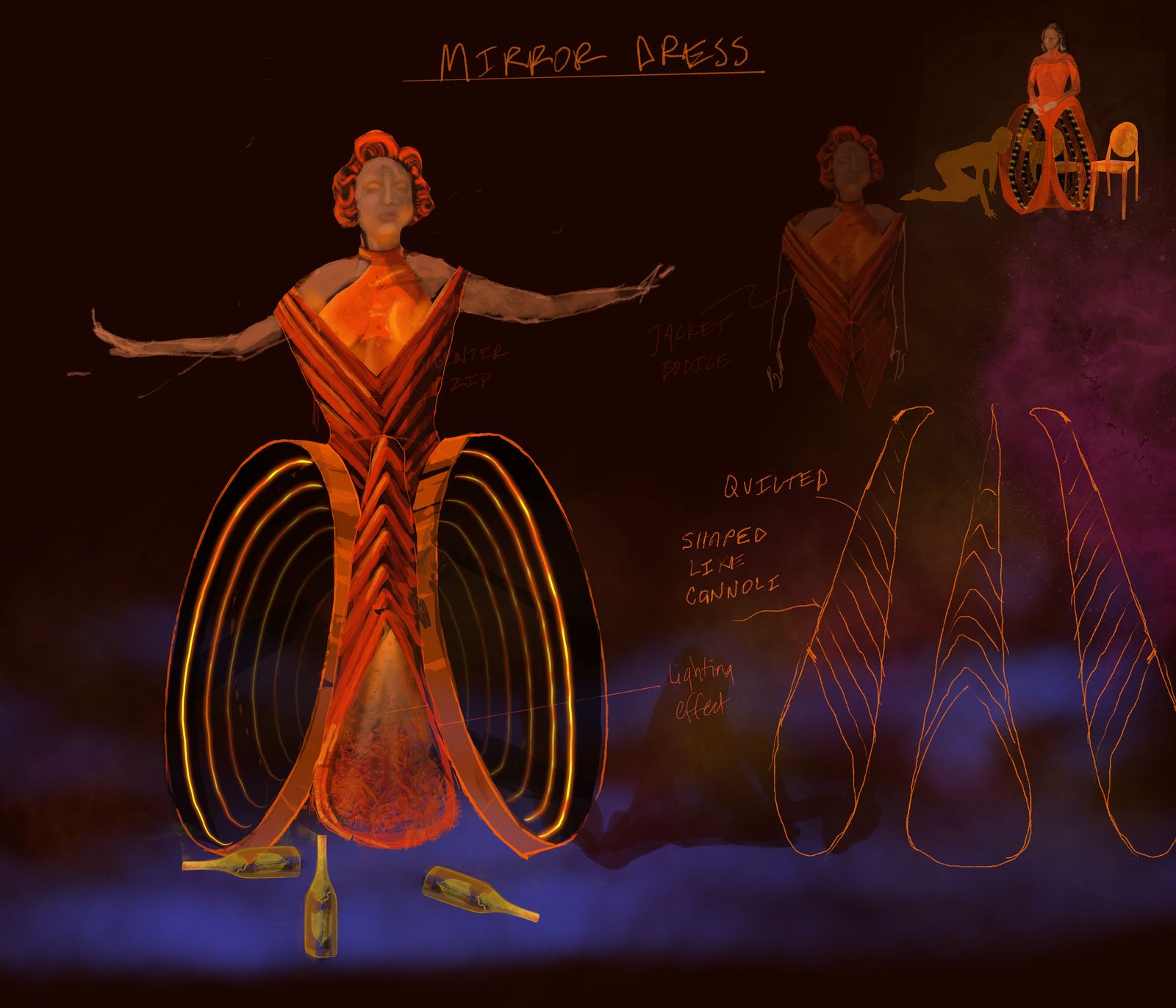

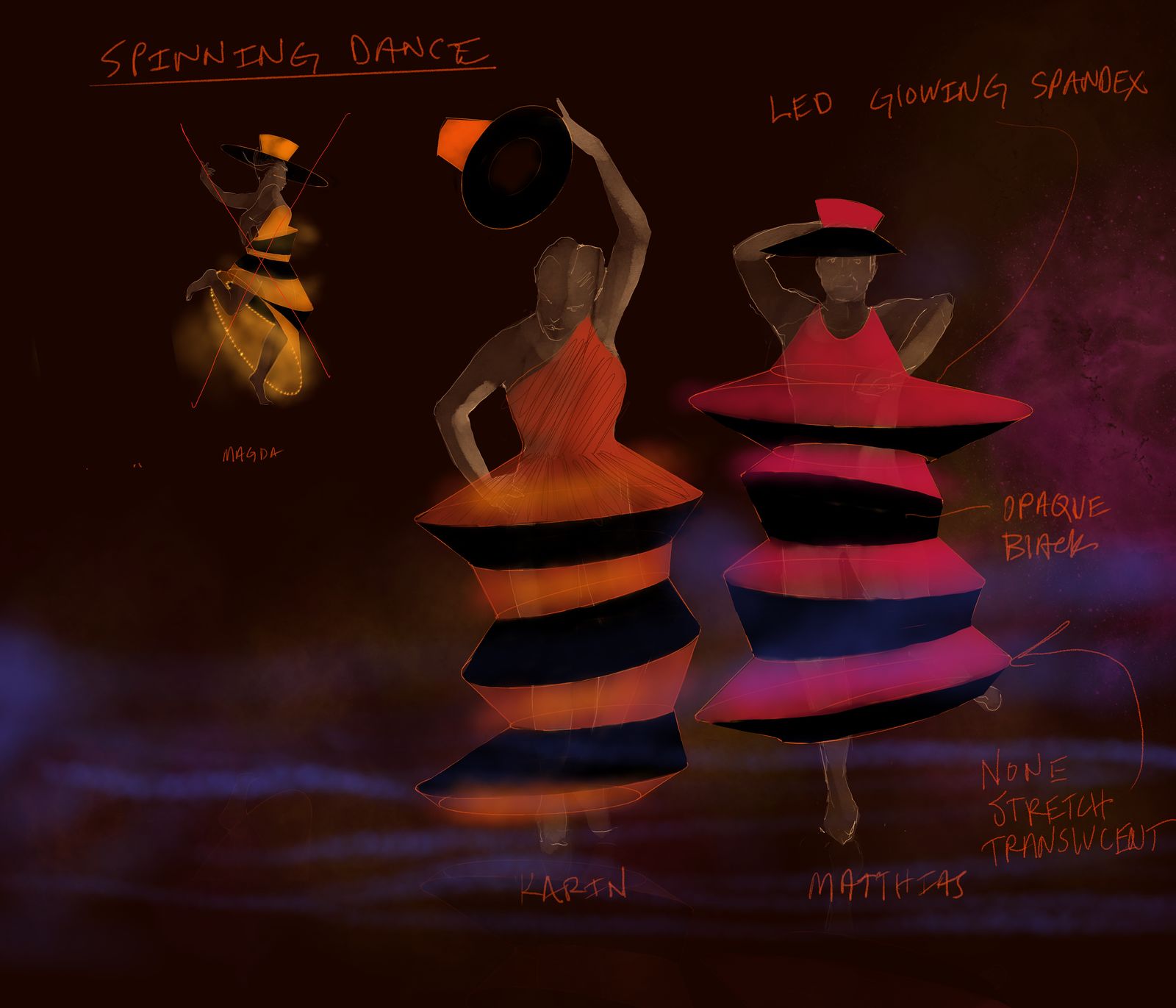
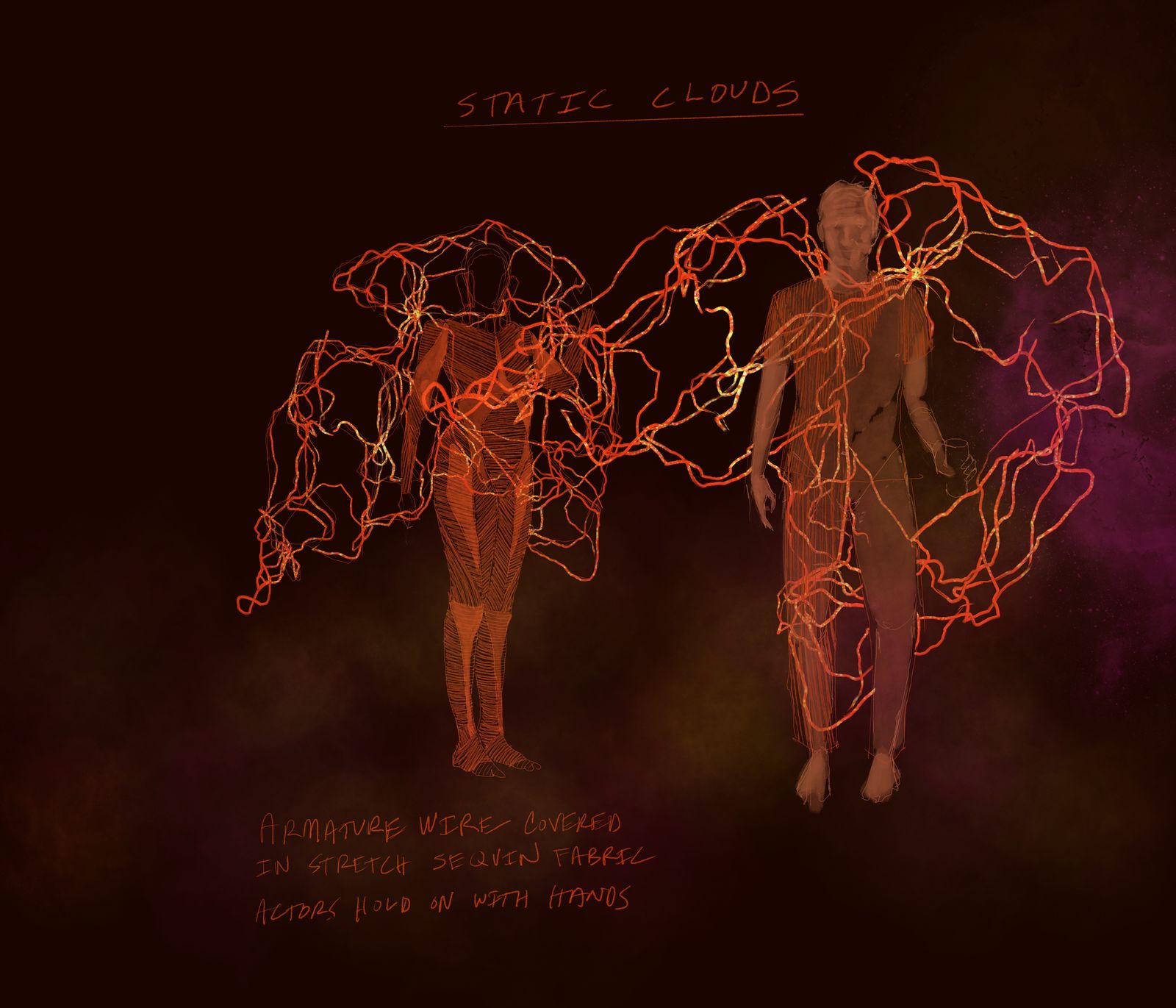








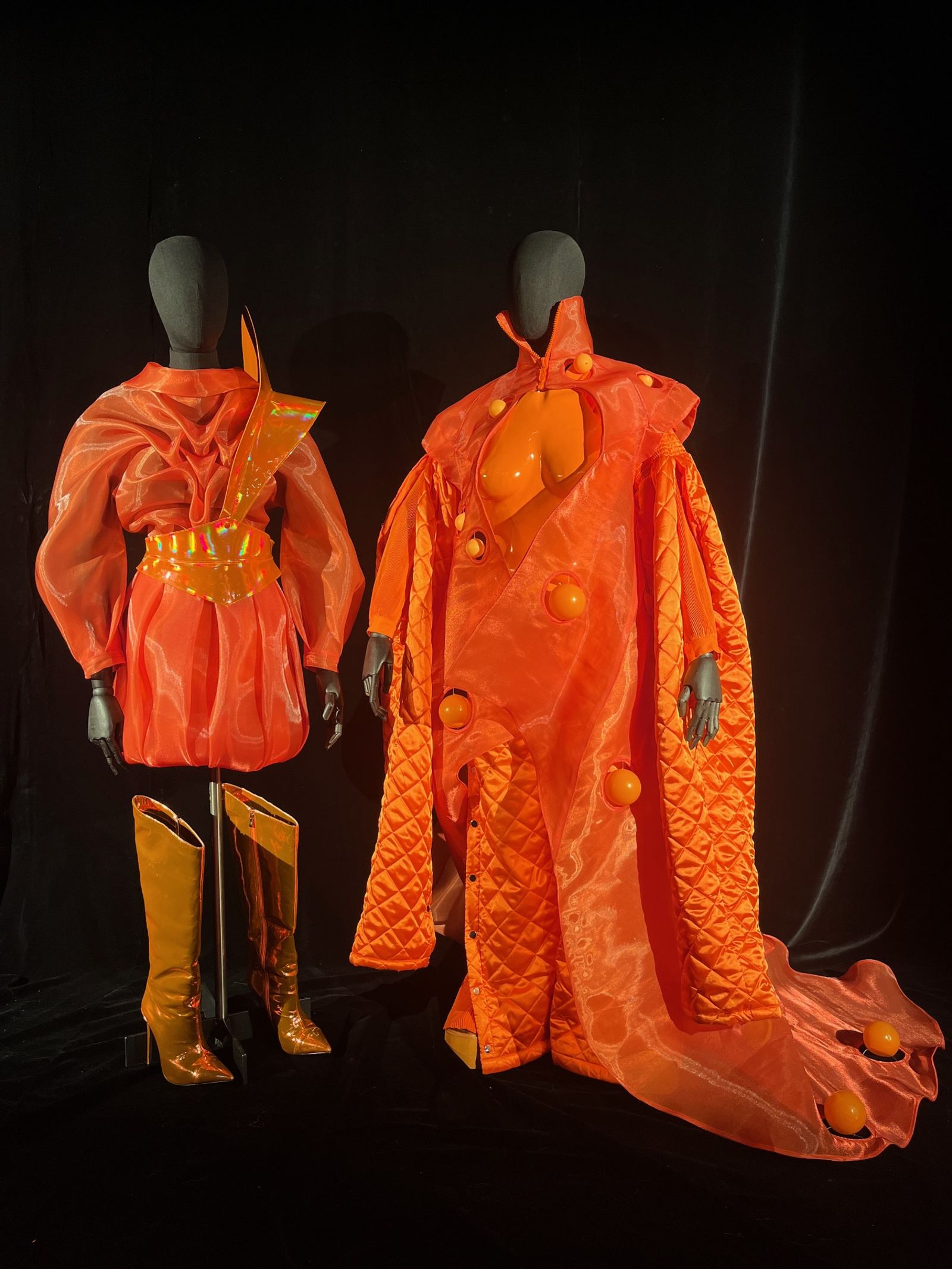





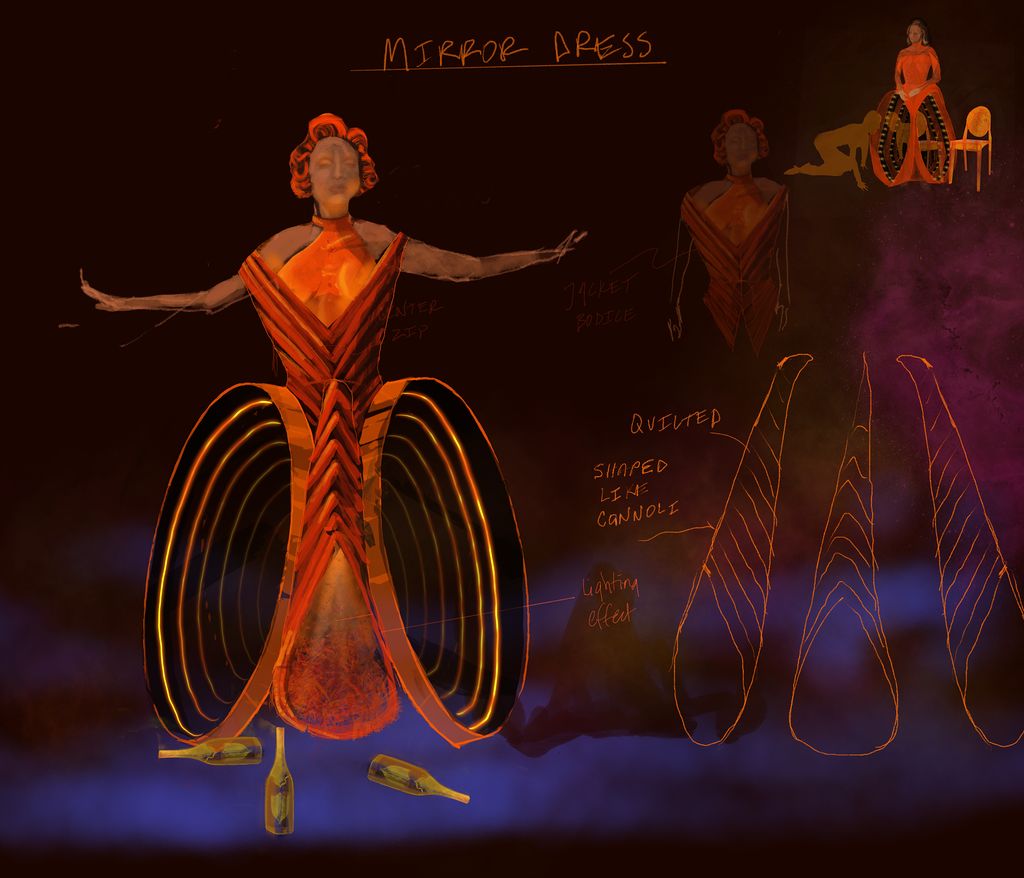

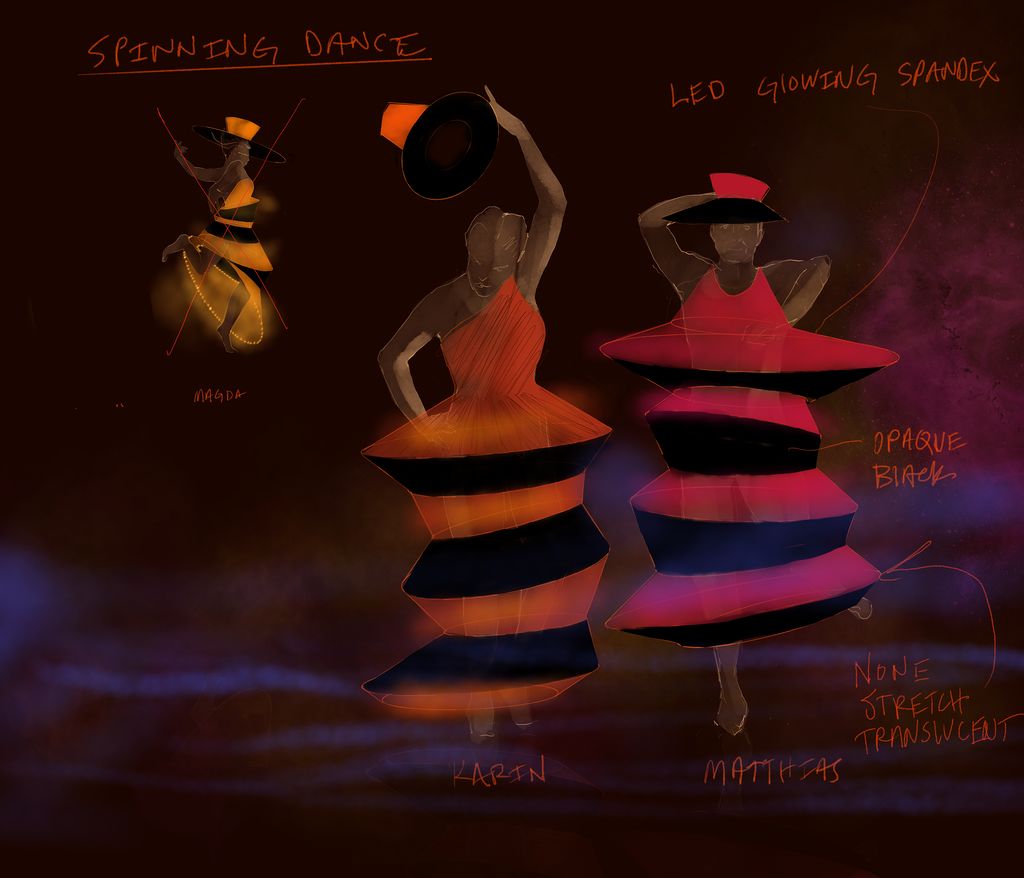
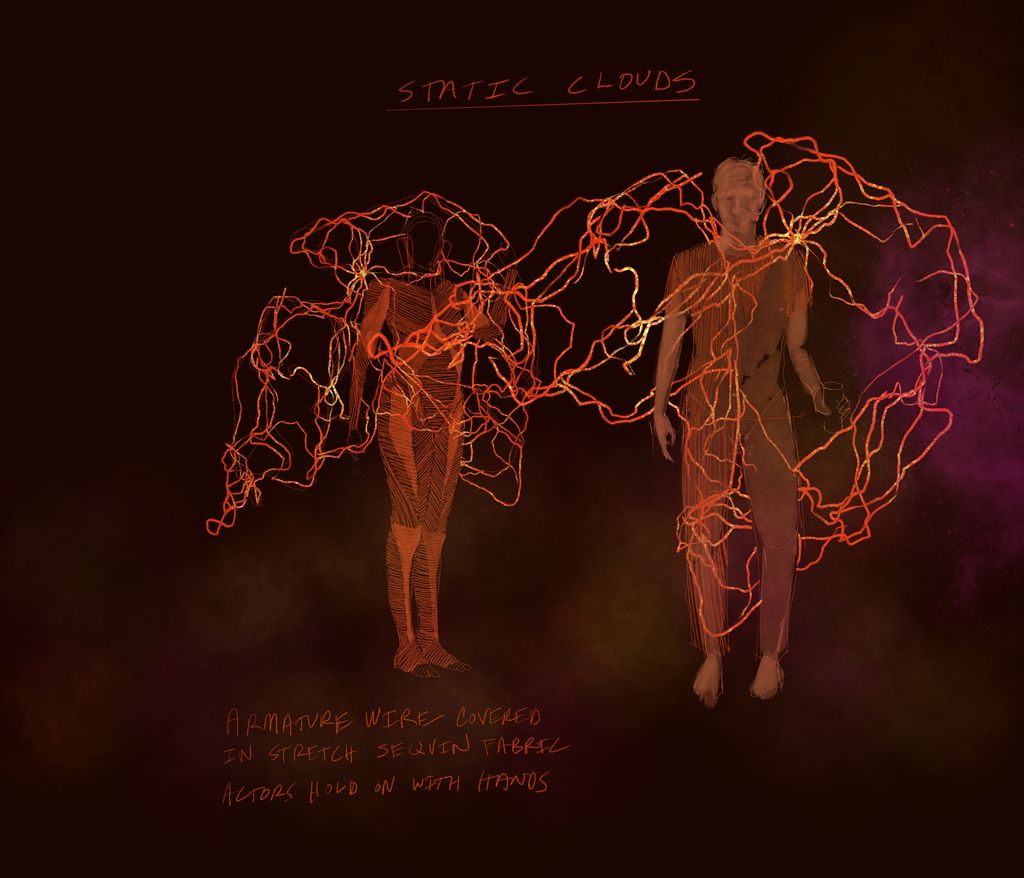













Ad

Ad


